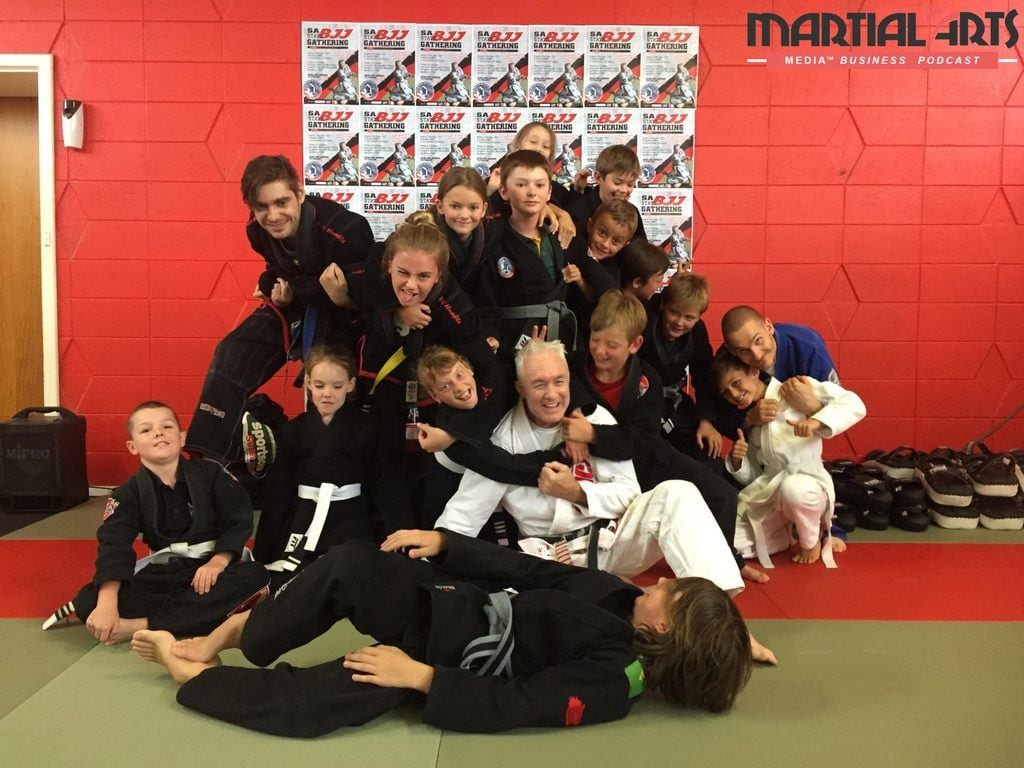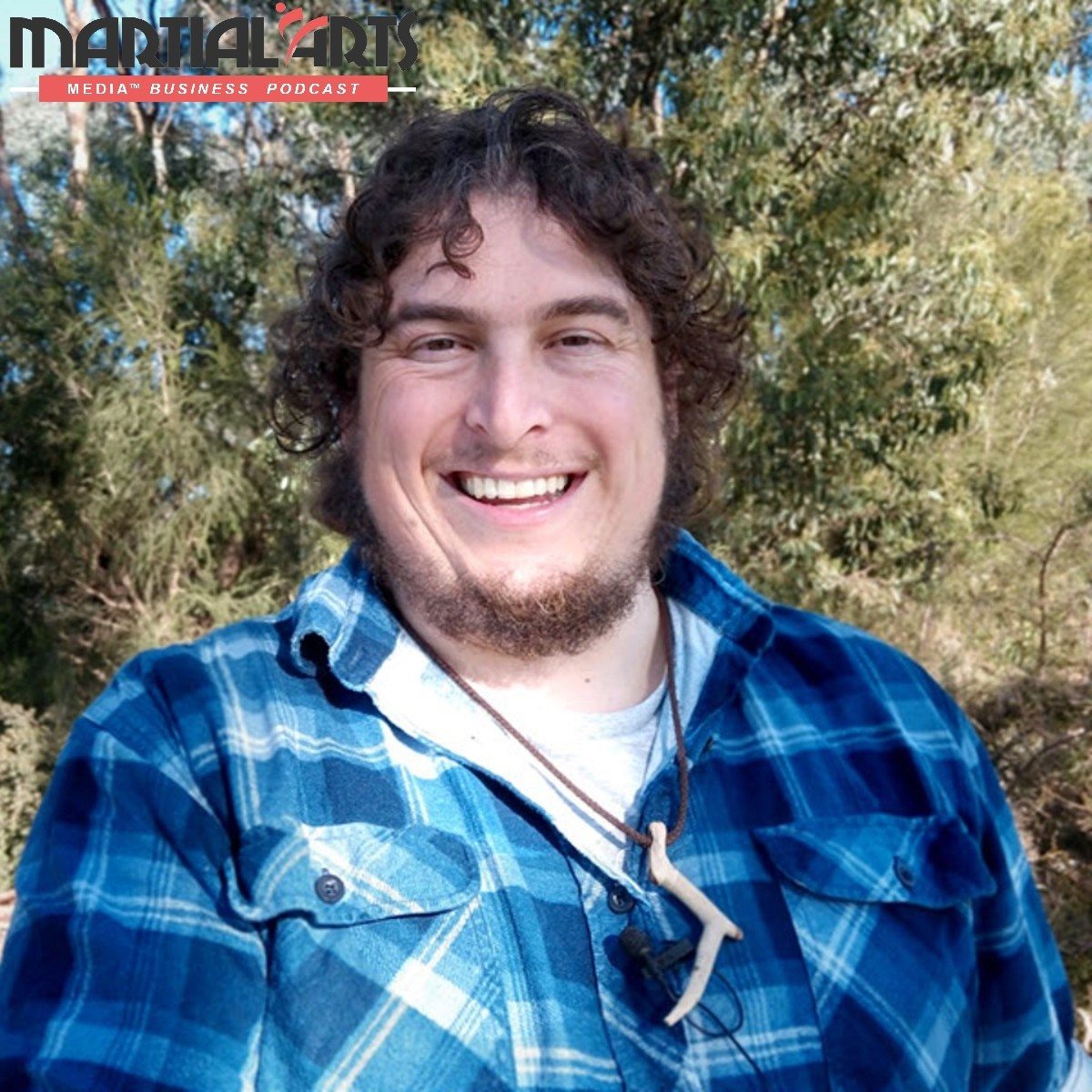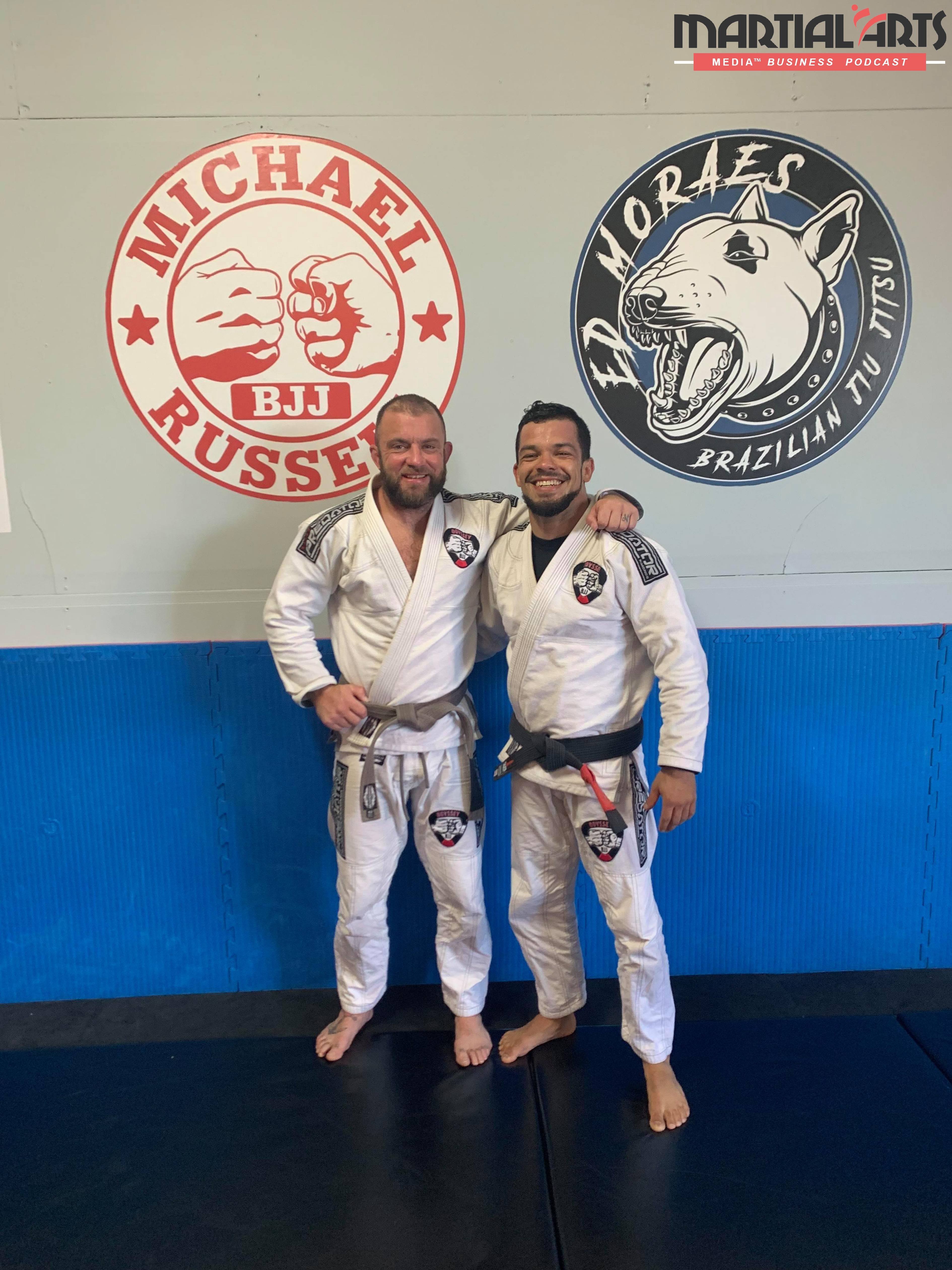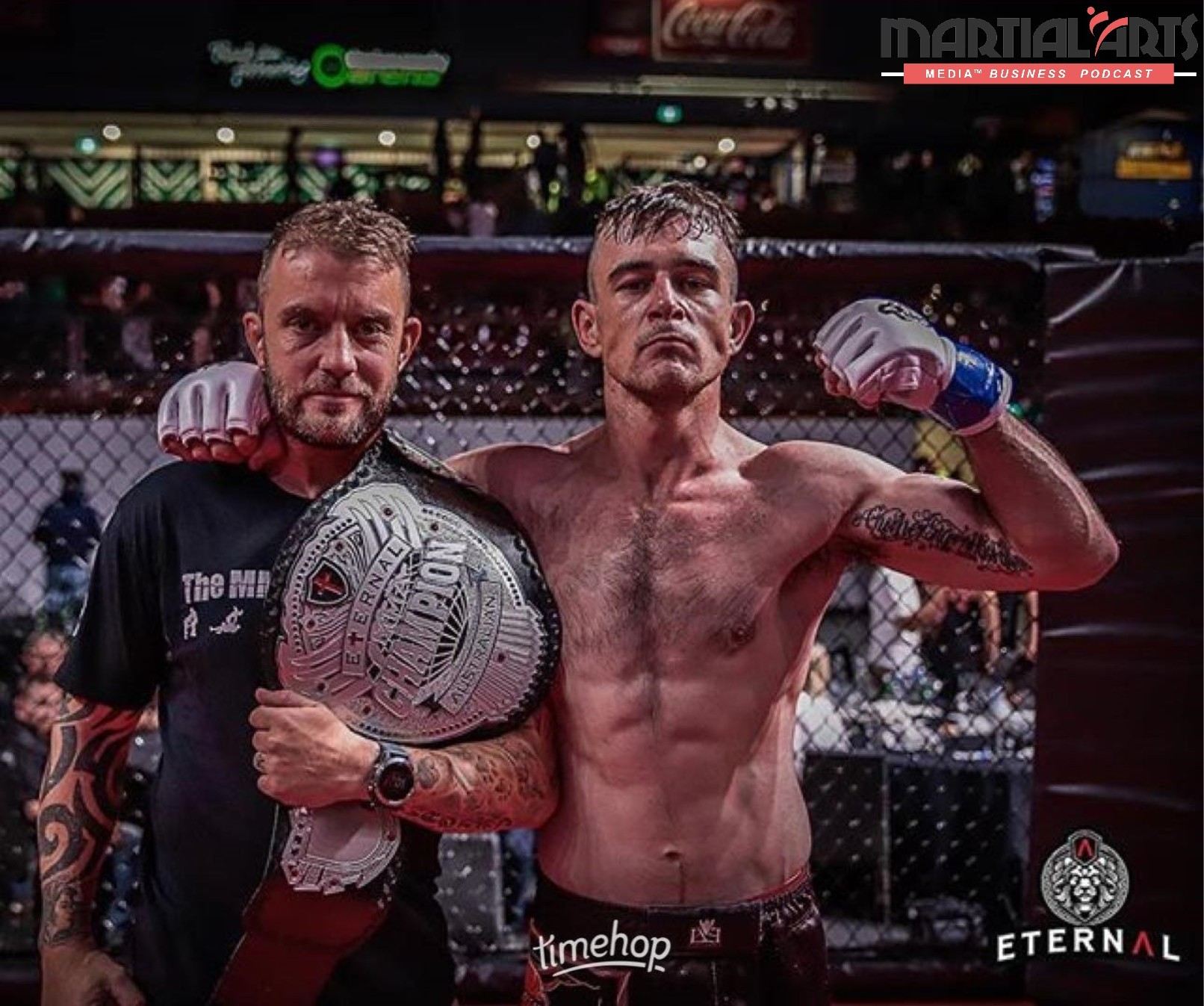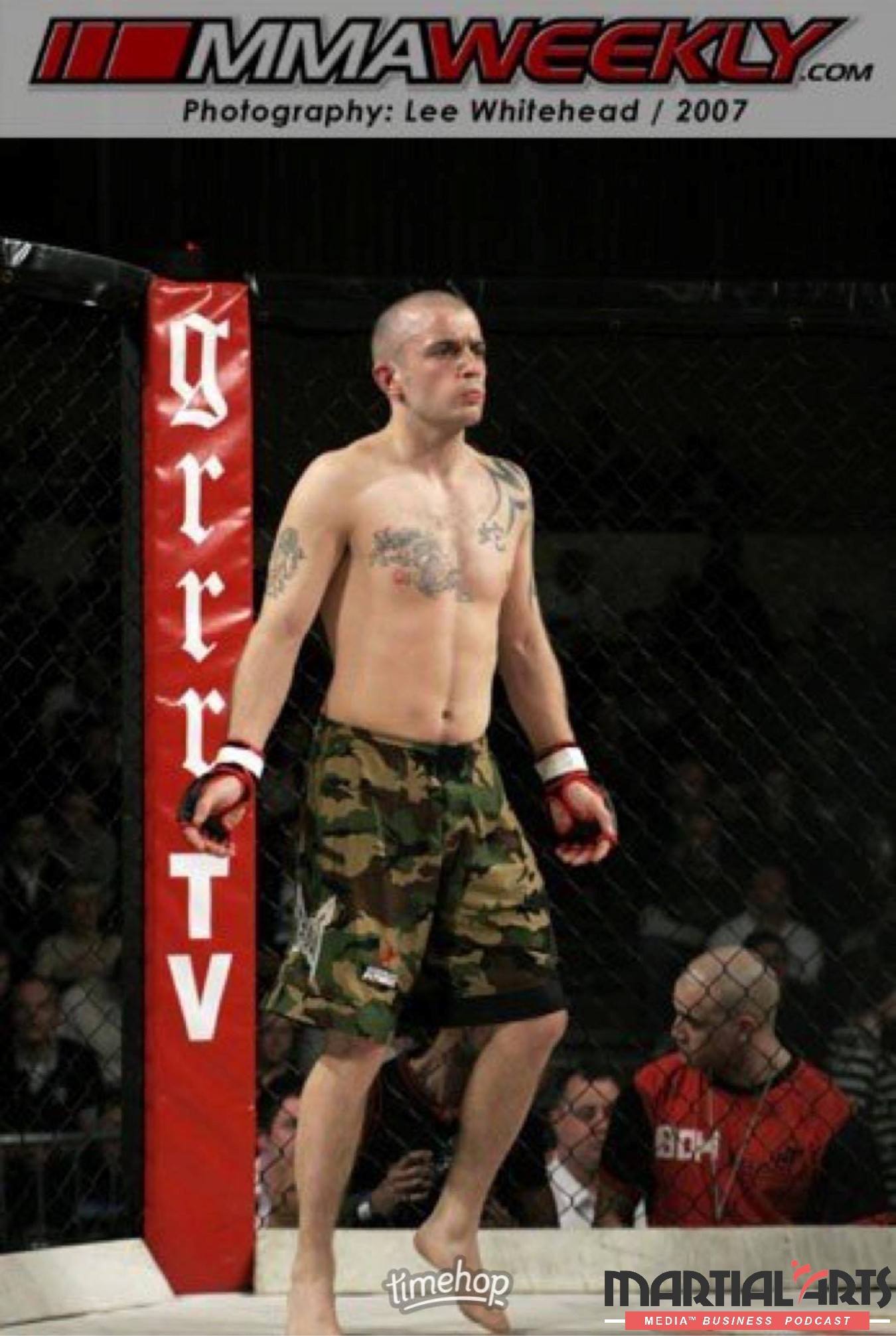Jason Everett, a high-performance salon coach, shares 3 main pillars to take advantage of with your martial arts business during uncertain times.
- The 3 key strategies to implement before you pivot your martial arts business
- Why you should double down on coaching
- The hidden opportunity all martial arts school owners have right now
- How to use your Facebook community to strengthen relationships with your students and instructors
- And more
*Need help growing your martial arts school? Learn More Here.
TRANSCRIPTION
Now the question is, if you're being tested right now, how do you show up to be tested? Are you going to double down? Are you going to get more coaching education, understand more about your business and get lit up and on fire for what you're doing? Or are you going to be like, “Well, I guess we'll just shut this thing down and I'm going to go on vacation for a few weeks and come back.”
GEORGE: Hey, this is George Fourie and welcome to the Martial Arts Media Business Podcast. The first live Martial Arts Media Business Podcast, and…
JASON: Wow man, that's exciting. First live.
GEORGE: First live, and I've got a really awesome guest here today. Now, Jason Everett is not a martial artist, but-
JASON: I'm not. I'm not afraid of some martial arts though, let's be clear. I think it's amazing. I'm just not very good at any of them.
GEORGE: Here's why I'm bringing Jason on. So, first up he brings good energy. Good energy, a wealth of knowledge and he's in a completely opposite industry, but facing challenges way more than any martial arts school owner is right now.
JASON: Probably true, probably true.
GEORGE: And so let me just hand it over to Jason. If you could just give us a quick couple of minutes, who you are, what you do and we'll go from there.
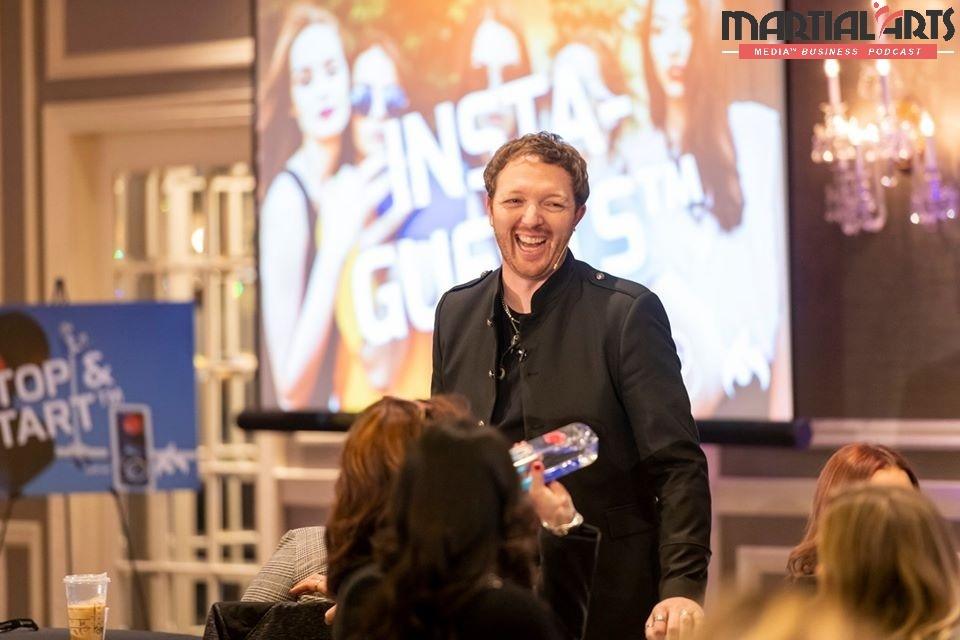
JASON: Yeah. Well first of all man, thanks for doing this and what you do for martial arts studio owners is extraordinary. I mean I know you do some incredible work for them and I would just say to you guys as a community, now more than ever you need what George is doing. And I say that because I just have seen inside our own group and because I run a group of salon owners.
So basically what I do is I work inside the salon, spa, beauty industry, barber shops all over the world to help them to increase the amount of take home income that they have, to grow their staff, to grow in locations and to really start creating wealth in their lives for salons. And the reason why I do that is that only 7% of salons actually make a profit, 20% of them are breaking even and the rest of them actually go backwards to go to work every single day.
So if you run a martial arts studio or a dojo or whatever you would call your place that you operate, is that if you could imagine trying to run your business and knowing that only 7% make money, that's pretty crazy, right? So salon owners very often, like for you guys in the martial arts industry, they love what they do but they're not always the best business owners. Right?
And I know that's very true and the reason why I say that… so I work with these salon owners all over the world. I've worked a lot in the corporate space with the salon and spa industry and I've done tons of work there, but I want you to know my background is actually… I come from being a dance instructor.
I was a ballroom dance instructor over 20 plus years ago and I've worked in outside sales, I've worked in advertising and marketing and all these different arenas. And the reason why I say that is because martial arts, dance instructors, even a hairdresser, all those things, those are very hands-on professions, right?
So if you think about the massage industry, you physically touch people. You guys might… I was going to say I'm going to make a karate joke about chopping them, but you know what I'm saying? The idea is that you guys are a hands-on industry. Gyms, dojos, all these places are very hands on and so when they say, “Hey, social distancing. Please do me a favor and don't ever touch anybody again,” or at least for 30, 60, 90 days or into the future, this whole idea of ‘don't touch your people’ becomes a very big challenge, especially for our clients.
We have salon owners all over the world, and by the way if you can relate to any of this, do me a favor and comment in the comment section below and say relate, because I want to know if you guys are connecting with this and it's helping you. But this idea is as soon as in the US and probably 90% of our clients have now completely shut down, they can't run any sort of business.
And like George and I were talking before, you guys, if you really want to, you could run martial arts classes online right now and it's really hard for a salon owner to say, “Okay, take out that really crappy pair of scissors in your drawer and take your hair, hold it up and let's go to town.” That's not going to happen, but you guys have a unique opportunity right now to pivot and to change some of your business model, even though it's going to be probably like a baby deer trying to walk on ice for the very first time, you at least have the opportunity to still maintain your income.
I was just on the phone and hope it's okay for me to tell you this. I was just on the phone, literally about five minutes before this with a friend of mine who still owns a dance studio. The guy, one of my good friends, he's been my best friend for over 25 years, he owns a dance studio and I was watching him in his living room teach classes.
He had his phone up and he had his iPhone and he had the lights up and his wife is walking around showing me he's teaching lessons on Zoom and I was like, “You go man, that's awesome.” He's still teaching private lessons in his house and walking around and dancing and showing people what to do.
So I guess background, but the other thing I would just say is would you guys please do me a favor and not get discouraged? Because when we look at what's happening right now, I just believe it's a test for you to decide, do you have really the chops that you need to have as a business owner to make it in a really tough time, or are you going to be one of those people who throws in the towel quits and says, “Forget it, I'm out of here. I guess I better go get a job doing what I've always loved, being a garbage man.”
Which is probably not any of you, but I'm just saying that's the choice you get to make here and the universe hands you this choice and it's asking you to step up and I love George, you're doing so much to serve these people and really help them and grow the community because the community needs to be tighter than it's ever been before.
GEORGE: Jason, so you're talking about having chops. I'd love to know what are you doing to inspire your clients because there is not really plan B. So what do you actually-
JASON: There's not really a plan B. There's one little plan B. The only little plan B that's going on right now is a lot of our clients very quickly pivoted and they're doing what's called root rescue, which they're giving… They're doing hair dye, because a lot of people come in and get the hair dyed or blow dried and all the other services, so they're actually still selling retail products because people still are on video calls.
You've got to make your hair look good. People still have their roots growing out, they have all these other services, so we do have some clients who are able to go in and do some very basic Amazon style. Sell some products and half come out of their business. But we're talking to people about literally laying off their entire workforce except for some key employees and making it through.

So, here's what we're doing from a strategy standpoint. There are three main pillars that we're talking about with all of our salon owners. Number one, you need to be able to stabilize what the heck is going on. You need to be able to stabilize your team, stabilize your business, decide what can I stop paying for? What can't I stop paying for?
And we were really clear is that we said, “Look, you've got to stop paying for things that you don't need right now and double down on the things that you do need.” In fact, I have doubled all of my coaching sessions with every single one of my coaches in the group that we're in.
I just upgraded them now going to the board room group, which costs me twice as much money to do what I'm doing. And I'm doubling down on the amount of mental health and strategy that I'm getting as a professional. I'm asking my clients to do the same thing, but I'm telling my clients, because they're not closing, I'm like, “Look, I'm going to go…” We normally provide inside any given month for our clients, we do two webinars a week and we do a destination training once every four months.
I was like, ah that ain't going to cut it, so I literally started doing every morning at 6:00 AM, we're doing mindset calls. So Monday, Tuesday, Wednesday, Thursday, Friday I do a mindset call at 6:00 AM. I have called in every personal favor that I have with every one of the highest profile, coolest friends that I have, to come in and jump on that call. And we've actually been doing that for over two weeks now. We're in our second week of doing that and it's actually second week plus.
So we're doubling down and I'm like, “Look, we're running a call every day, plus we're running our Monday call and we're running our Wednesday call.” And our group is on fire because they're talking every day and people are sharing, here's what I'm doing, here's what I'm doing, here's what I'm doing.
And so if you're not engaged in the Facebook community that I'm sure George has, make sure that you're sharing what the best ever practices are because that thing that you might not think a big idea, what's happening in our group right now, is people are sharing an idea and then it's snowballing.
So one gal said, “Hey I'm doing this root rescue thing,” and this other gal said, “I'm using baby food containers to fill up hair color,” and then this other gal said, “I got on TV,” and this other guy… So they're one upping each other on all these cool things that they're doing and the whole group is elevating in spirits and in ideals and all those things.
And in addition to doing all of that, I'm literally doing daily lives. Anybody who calls to ask, I'm doing a live with them. I'm also bringing them on my shows and doing everything I can to make sure that every single day people are encouraged, because in a world where everyone is discouraged, there needs to be more encouragement. I'm just on that path, trying to be as encouraging as possible because hell yeah, it's hard, but this is where business owners are made or broken.
I don't know about you guys, but you guys are martial arts guys, right? You know you got to break people down sometimes to build them back up. This is just the world breaking you down. It's just saying, do you have what it takes? Are you that business owner that's going to rise to the occasion and do something extraordinary, or are you going to remain an ordinary business owner?
Because ordinary business owners, ordinary martial artists… you know, I'm like a loser martial artist. I've had a couple of sessions. My dad used to be big into Tai Chi and we used to do all kinds of stuff and I've done some karate, but I'm just like a baby junior cub scout, right?
I've had some exposure. I can't imagine that every single one of the owners that is in your program is not an absolute consummate professional, expert, award-winning champion tournament winning expert.
So now the question is, if you're being tested right now, how do you show up to be tested? Are you going to double down? Are you going to get more coaching and education and understand more about your business and get lit up and on fire for what you're doing? Or are you going to be like, “Well I guess we'll just shut this thing down and I'm going to go on vacation for a few weeks and come back.”
So, I was in my list and then I just started ranting, sorry. So I went into… The first thing we're doing is we're teaching how to stabilize, stabilize is number one, right? Stabilize what's happening in your business. Number two, you've got to get organized. You've got to organize what are you going to do between now and when you can open?
And by the way, that might be 30, 60 or 90 days. I'm hoping it's more towards the 30 or less, but let's assume it's 90. Even if it's 90 freaking days, you can survive 90 days. You got this. I'm not even worried about you.
So we talk about how you get bridge financing? How do you borrow what you can from the bank? And hopefully you'll get some given by the government, we'll see. But borrow what you can, survive on what you can. Go down to your bare minimal staff.
And then third, I just want to say this, because this is the part that I'm the most excited about and it changes my mindset every time I think about it. The other side of this is going to be the greatest transfer of wealth in our entire lives.
I don't think people get this, is that right now all of the crappy martial arts owners are going to go back and get jobs as garbage men, we already talked about that. But the martial arts studio owners that pivot to online quickly, they call up every one of their students and say, “Look, we have trained you for battle every single day of your entire life, it's time to battle with us. Here's what we're going to do.
And even though the battle's not a physical battle, it's a mental battle. Here's what we're doing to keep you sharp until you can come back into class with us.” That's just totally a different positioning, right?
You've got your kids at home? You need to be more prepared. You've got your wife on you every single minute of every single day? Even more prepared. It is more time for you to get that discipline dialed into your brain. So get up early, stay up late, do whatever we've got to do and your job is to be that bright spot, the keeper of the light for every single one of your clients. And if you become that keeper of the light for them, every single one of them will remember what you did for them when they were struggling.
You won't keep everybody, but you will keep a lot. And the ones that you keep focused will stay addicted to you, and that is where you've got to capitalize. I said the third thing, right? Stabilize, organize, capitalize. That is where they will become addicted to you and they will be able to grow. They will be able to flourish and you will come back even stronger and even better. You'll just have better looking muscles when you come out of this thing. So anyway, I know I'm just going off here, but I hope it's helpful George. You've got to let me know if I'm on the right track.
GEORGE: Yeah man, it's totally awesome and what you're saying is just being collective in a group where you've got this energy. I've been talking to our Partners group the last couple of days and every time we map out this plan, it's just evolving because there's no script for it.
JASON: There's no script for any of us, bro. That's the good news. Nobody's got the damn script. There's nobody who has the advantage right now, and I think I've said this the other day on another show. Super, super important. What I know is that if you and I were going to go into a martial art show showdown, because you have a martial arts background, right?
GEORGE: Yeah.
JASON: Yeah. I don't have a salon owner background, just so you know. But you have a martial arts background. If you and I were going to step into an arena and we were going to have a physical battle, I know you would kick my ass. I have no doubts in my mind. You know enough to hurt me very badly, I have no doubt, right?
But here's the thing, the cool thing is you're going through something you've never been through before. I'm going through something I've never been through before. Everybody else out there is going through something else they've never been through before. And here's why I'm not scared for a second. Okay? Is that when everything is equal, I know I will outwork everyone.
GEORGE: Nice.

JASON: That's it. I just know I will outwork you. I will outperform you. I will out-knowledge you. I will outperform everything because I've been practicing for the most random crap ever in life. I've been smacked in the face. I've been fired before. I've been in all these other scenarios that I've had no money in my bank account. I know how to build back from zero.
And I've said before, if somebody took away my entire business, could I build it back? My answer was hell yes. So it's not some one taking it away, it's some random thing that may or may not take away.
But if I had to rebuild it all again… let's say my whole life got reset in 90 days, I'll just rebuild it again and I'd rebuild it a hell of a lot faster than the first time I built it. You know what I mean? If I've got to move in with my parents, then I move in with my parents. It's never going to happen, but I'm just saying if I had to, I'll do whatever it takes, man. My job is to provide for my family, provide for the people who rely on me, and I'll do whatever it takes to make sure I make it out right on the other side.
GEORGE: I just want to repeat what you just said, because if any school owner, if you're thinking you had competition, you don't have it right now. The playing field has just gone level and nobody is… Yeah, someone might have a few more resources than you, but the playing field is equal and if you can rise up and step it up, you're going to come out of this a lot better than you were a couple of months ago.
JASON: Yeah. And by the way you guys, do me a favor if you're on this live or if you're watching later, type in what is the thing you're connecting with the most right now. What's the piece that's firing you up? Because my assumption is that when I get on the phone and I talk to anybody, I'm going to fire some people up and I always want to be in that spot, right?
I want to get something inside your core to get pissed off so that you do something. Is it like, “Damn, why is this guy more fired up than I am?” Or like, “Why is he saying that I'm going to be the loser who gets wiped out on the other side of this?” Because what would you say in a martial arts environment? Step into a ring, an arena, an octagon, what are we talking about here? What would you say? Step into a what?
GEORGE: Step on the mat. Step on the ring. Step in the octagon.
JASON: Step on the mat, step in the ring.
GEORGE: Yup.
JASON: Here's what I would say. If you step on the mat or step in the ring, you know that your mindset either takes you out or lifts you up before you step on that mat. The problem is everybody's standing on the mat with the wrong damn mindset right now.
Oh no, this unknown thing that we have no control over is going to take us out, and it's like, just because it's an unknown and it's like this is an opponent I've never faced before. No shit, so is everybody else. Everybody else hasn't dealt with it either.
And I don't know about you man, but I just have always felt in my entire life, every day I… and it sounds cheesy, but every day is a gift. You've heard that before, right? But I really do believe this, is that I really thought that every single day I could walk out the door and get hit by a bus, take me out.
I just believed that that could happen at any point in time, so here's what I know, is if my gift is to be able to breathe life into other people by helping them understand that they are way more capable than anything they've ever thought possible, right? Everybody's had that taste of like, “Oh, I could be better at this.” Everybody's had that taste, and every time you do something, you get better and you get better and you get better.
So we all have this gift to be able to improve and get better. Since we were little children, we've all improved, gotten better, and gotten better and gotten better, and we've done this acceleration. So there's room for every single person to get better. And what I know is that my gift is helping people realize that they're capable of way more than they are right now.
And if I didn't get hit by a bus this morning and I'm still freaking here, I got more to do. So if I have one conversation in my life, right? If I have a conversation with you and it prevents you from… I'm talking to you one day, we're casually walking down the street and you go to step out in front of a bus and I grab your shoulder and pull you back and I saved your life.
Whether it's literally mentally or physically or whatever, and I'm on my purpose for what I should be done to do, and I get taken up that day in whatever capacity I get taken up in, then dude I lived the best life I could possibly live, but every day that I get to wake up and breathe, it's another opportunity for me to help one more person.
Maybe there's only one person that watches this whole show and they're like, “Holy crap, that changed everything for me.” Dude, that's why I did it. I'm 100%.
But I'm hoping it's going to be more like 20 or 40 or 100 or 5,000 or whoever the hell wants to listen because you deserve to know that you're capable of way more and every single one of you is, I'm sure more of a bad ass physically, mentally and emotionally than I am. I'm sure.
I have no doubt in my mind because of how disciplined you are. Discipline for me is one of the hardest things, but don't let your discipline down right now in this moment. This is when you should be… This is when your discipline is getting tested. This is the ultimate test for your discipline that you guys apply every single day.
GEORGE: Love your energy. Anything else? I want to be respectful of your time as well. I know you're a busy guy.
JASON: Yeah, we've got a lot going on. But dude, yeah… I mean, what do you think would be the most helpful thing that I could share? Or in your mind, what question do you think…? If you had to pretend that you knew every single mind of every single one of your school owners and businesses that you work with, what do you think they really need to know right now? What do you think their question is?
GEORGE: I would say reconfirmation of where the opportunity lies here. I've been begging martial arts school owners to do videos for years, and all of a sudden everyone's doing it.
JASON: Yeah, yeah, yeah.
GEORGE: So that's perfect. Where do you think this shift is going? And if you had to focus on one thing right now, where would you place all your energy?
JASON: I said this to my salon owners. I said there's a really good book out there called Who Moved My Cheese, okay? And if you haven't read that book, it's a good book that you should read and just be aware of.
And basically what it talks about is you put these mice in this maze and there's a piece of cheese at the end of this maze that they go find. And they let the mice go for however long they go, a couple of weeks and they get really conditioned to that's where the cheese is.
And then the experimenters or the scientists grab the cheese, move it to another place in the maze and the responses of some of those mice is that some of the mice go right back to the cheese over and over, or right back to where they think the cheese will be, over and over and over again.
And at some point those mice… I don't know if mice pout, but the mice just sit there and they go, “I'm waiting for the cheese. It's supposed to be here. There's no more cheese.” And they either run back to the beginning or back to there and they just go, “Well there's no more cheese anymore.” And they give up.
Then there's the mice that just forget all together and could care less. They just say, “You know what? I'm not going to run the maze anymore because there's no more cheese. It's totally been removed from my world and I'm done.” And then there's the mice that go, “Well, there's got to be cheese somewhere else in this maze.” And they start searching for new paths. Your job right now is to search for the new path to get the cheese.
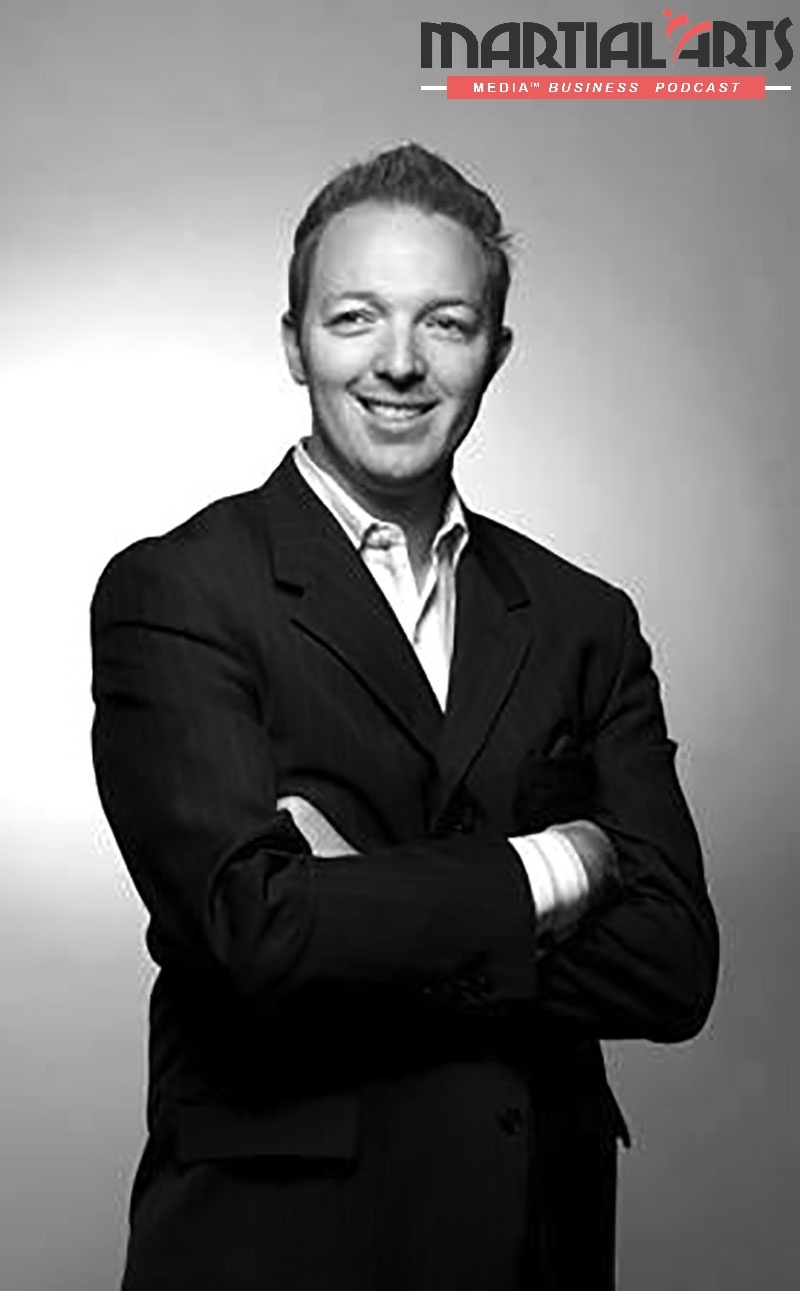 I want you to hear this. People have more money than they've ever had before. I eat out almost every single day and I've eaten out twice in the last week. So do you think I have more money or less money right now? More.
I want you to hear this. People have more money than they've ever had before. I eat out almost every single day and I've eaten out twice in the last week. So do you think I have more money or less money right now? More.
I usually fly three times a month to different cities. Well guess what I didn't do? I didn't fly. So guess how much more money I have? I have more money now than I've ever had before because all my expenses have been reduced to basically zero. Don't get me wrong, I have a bit of an online shopping habit that's now getting a little bigger, but my point is that most people believe it or not, even though you're thinking, but Jason, my clients have been laid off. Some of them, yes, but not all of them. Not all of them.
I've heard unemployment in the US might go up to 30%. That's the crazy number they think it may go to. That means 70% of people are still employed, so don't let that idea that ‘all of my clients are gone’ is going to do it.
What I'm saying about this cheese analogy and all this other stuff that I just want you to get, is that, yeah, you know what? Maybe temporarily you're going to need to go to an online dojo, but I just want to let you know it's going to change.
We're not going to stay locked in our houses from now until the end of time. I mean, it's not going to happen. I can't foresee that happening. We're going to go through it. We're going to get through whatever that is.
And again, put a 30, 60, 90-day plan in place, weather that storm and hopefully your business is strong enough to weather that storm. If not, schedule an emergency session with George and the team and go how the hell do I plan this out because I don't know how I'm going to do it?
And by the way, that's why you need a frigging coach on your side to help you, so you're not trying to put together your own crazy ass plan, right? Get some real advice on this. This is probably a test for you to say, “Look, how good are you at technology?” Do you suck at it?
Because what I've told people is what used to be a nicety, like, “Oh it'd be nice if we had online classes. It'd be nice if I had a website that people could buy classes on. It'd be nice if I could do it online. It'd be nice if we do all these things.” Well look, all those niceties have become necessities. Okay?
And so all of these things like for me, I've got high-end camera gear and audio gear and all this other stuff because I do classes like this and there's a lot of things that I've had to do over the years to kind of adapt and overcome because of how I wanted to run my business and I just shared a video. I shared… Three years ago, I ran a company called The Video Rock Star Academy teaching people, and the whole video was how do you future proof your business?
And it made sure no matter what happens, you can stay on top of the curve. And I said you better know about video marketing. Three years ago I said that. Guess what the number one thing is I'm teaching right now George?
GEORGE: Video marketing.
JASON: Video freaking marketing. How to do video? How do you show up on camera? What do you need to do? Because people are going, “I don't even know. How do I turn my phone on and make it work? And Facebook and like…” I'm not meaning to insult anybody, but you're five years behind the rest of the learning curve so get with it, get on track, pivot and understand that pivot's not forever. Maybe you're independently wealthy enough that you can just survive for 90 days without worrying about it.
But you know what? This is a perfect opportunity for you to teach everyone on your staff how to use video, how to use technology, and how to do it. And it's your job as the leader of your school, of your dojo, of whatever it is that you have. It's your job to step up and be that leader because your staff needs you more than they ever have.
And all those things that you teach them, you've got to exude. It's got to seep out of your pores man, because you guys talk about leadership and discipline and all that other stuff. It's your turn to be the leaders and to be disciplined and do all those things.
Anyway man, I hope this has been helpful. I hope it was powerful, man.
GEORGE: Totally. Jason, ever so grateful. Thank you so much for jumping on.
JASON: Yeah, man.
GEORGE: We'll give virtual fist pumps.
JASON: I've got digital knuckles brother, that's how that works for me. Digital knuckles, that's how this happens.
GEORGE: That's cool. Hey Jason.
JASON: Thanks so much for having me on man.
GEORGE: Thanks so much. Is there anything we can do for you just to say thanks? Give you a thumbs up somewhere?
JASON: Dude. Here's what I would say, if any of you guys want to stock any of the stuff that I do, you can find me online. Just go onto Facebook. You can find me at facebook.com/… If you want to find me personally, because my salon owner stuff may not apply to you, but just go online. You can find it at, it's Mr. Jason Everett. Very fancy, Mr. Jason Everett, or just search Jason Everett.
I'm connected with George on here, but what I would just say is, here's the one thing any of you guys could do for me. If you go on my page and you track down anything and you see it, here's my request. If you see something and it ever speaks to you, share it for me.
The best thing you can ever give me as a gift is not your money. It's your ability to reach one more person. If you help me reach one more person with what I do, even if it's a salon owner piece of content and you're like, “You know what, but it was really inspiring,” just share it on your page because you know what? I know every single one of you, most of you, have hair on your head and you probably go to the salon or a barber shop or something like that and I would love to be introduced to more people.
So if you could help me fulfill my mission to meet more people and to help serve more, that would be what I would ask man, come track me down and you can find me at jasoneverett.com on any of the socials. Just track me down, connect, share some of my stuff. I would be eternally grateful.
GEORGE: Awesome. Jason, thanks so much for taking your time to share your message with us. Super helpful, love your energy.
JASON: My pleasure man.
GEORGE: I'll speak to you soon.
JASON: George, keep doing what you do, brother. Keep up the good fight and keep disciplined. All right dude, talk to you soon.
GEORGE: Thank you. Cheers.
JASON: Bye.
Awesome. Thanks for listening. If you want to connect with other top and smart martial arts school owners, and have a chat about marketing, lead generation, what's working now, or just have a gentle rant about things that are happening in the industry, then I want to invite you to join our Facebook group.
It's a private Facebook group and in there, I share a lot of extra videos and downloads and worksheets – the things that are working for us when we help school owners grow and share a couple of video interviews and a bunch of cool extra resources.
So it's called the Martial Arts Media Business Community and an easy way to access it is, if you just go to the domain named martialartsmedia.group, so martialaartsmedia.group, g-r-o-u-p, there's no .Com or anything, martialartsmedia.group. That will take you straight there. Request to join and I will accept your invitation.
Thanks – I'll speak to you on the next episode – cheers!
Here are 3 ways we can help scale your school right now.
1. Join the Martial Arts Media community.
It's our new Facebook community where martial arts school owners get to ask questions about online marketing and get access to training videos that we don't share elsewhere – Click Here.
2. Join the Martial Arts Media Academy and become a Case Study.
I'm working closely with a group of martial arts school owners this month. If you'd like to work with me to help you grow your martial arts school, message me with the word ‘Case Study'.
3. Work with me and my team privately.
If you would like to work with me and my team to scale your school to the next level, then message me with the word ‘private'… tell me a little about your business and what you would like to work on together and I'll get you all the details.
Enjoyed the show? Get more martial arts business tips when you subscribe on iTunes for iPhone or Stitcher Radio for Android devices.
***NEW*** Now available on Spotify!
Podcast Sponsored by Martial Arts Media Partners











